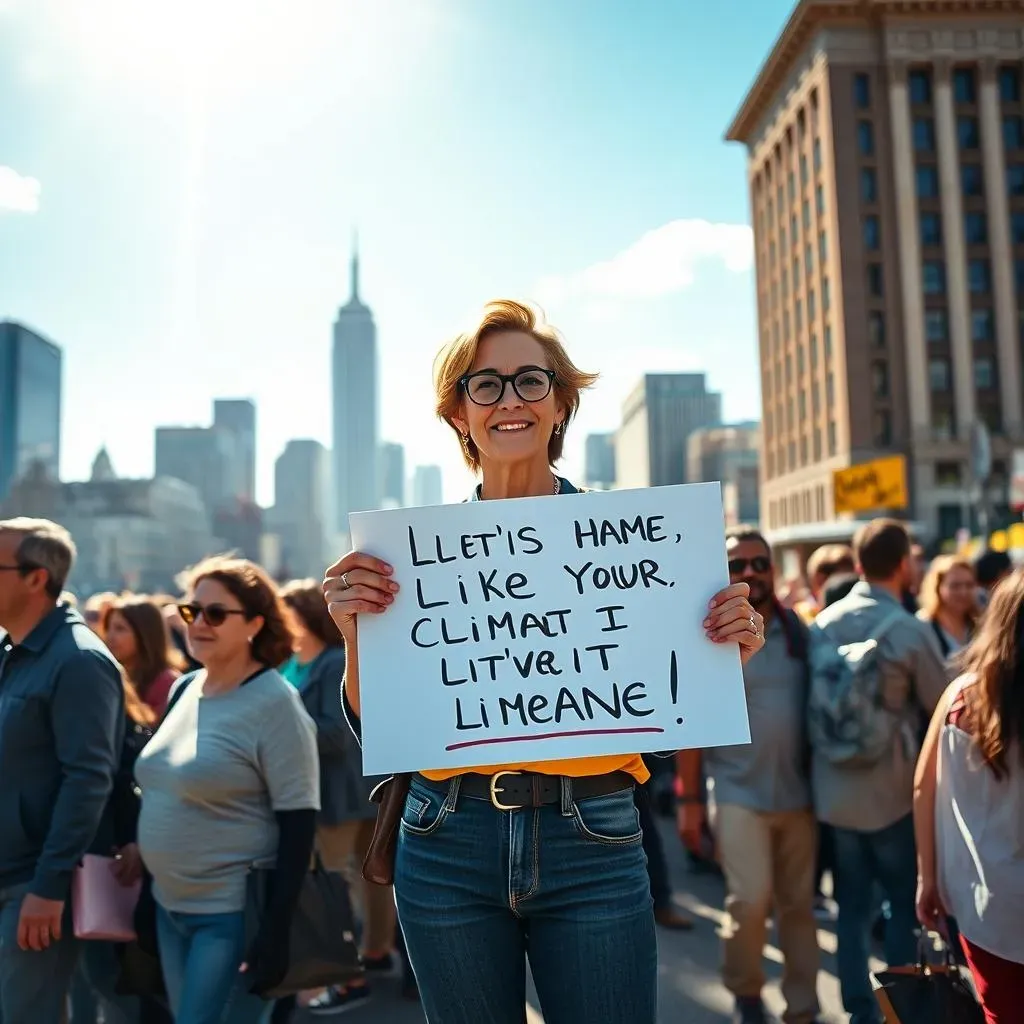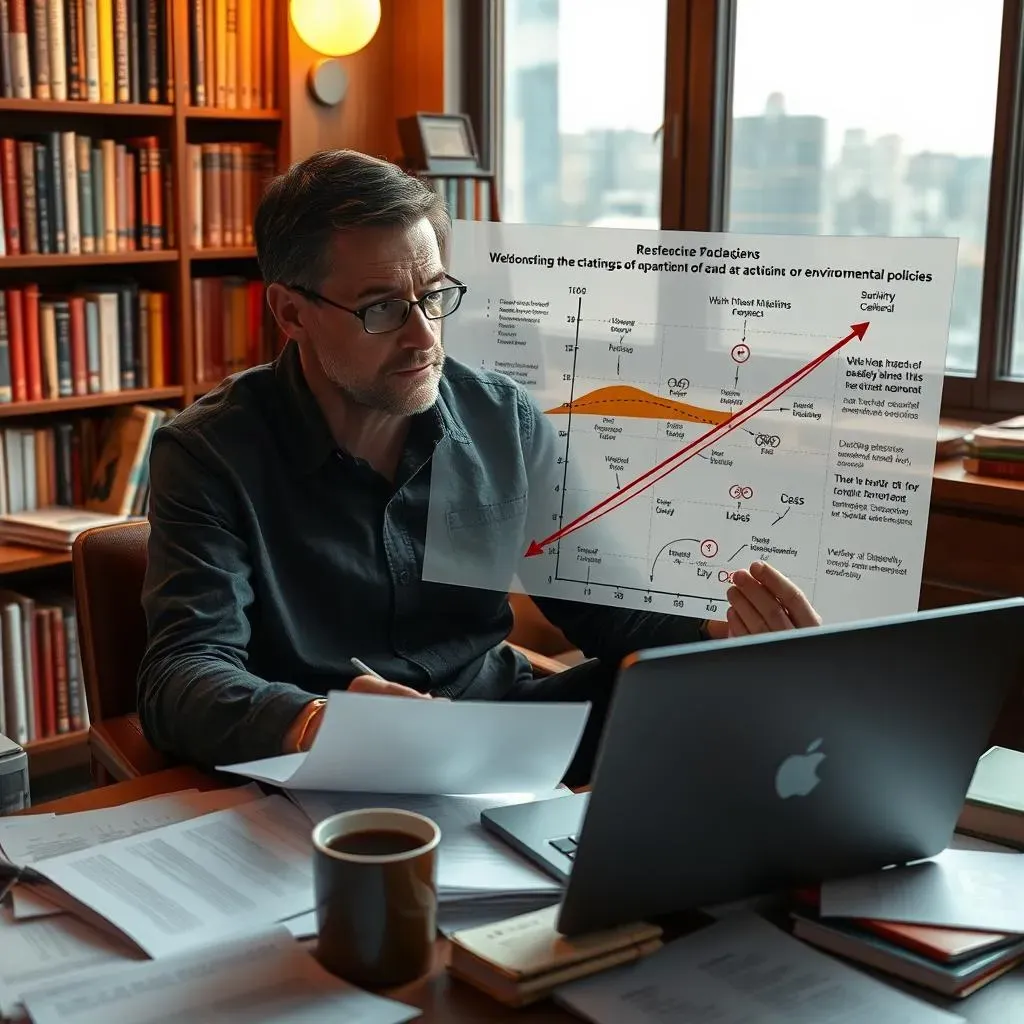Table of Contents
Ever wonder if those famous faces speaking out about the environment actually make a difference? This article dives into the complex relationship between celebrity activism and real-world environmental policy changes. We'll explore how celebrities use their platforms to raise awareness and push for action on crucial environmental issues. But it's not just about raising awareness; we'll examine the tangible impact of celebrity campaigns – do they actually lead to shifts in policy? We'll analyze specific examples, looking at both successful and less effective strategies to understand what truly works. This isn't a simple "yes" or "no" answer; the impact of celebrity activism on environmental policies is multifaceted. We'll delve into the challenges and opportunities, exploring how effective measurement and collaboration can strengthen the influence of celebrity voices for positive change. Get ready to unpack the power—and limitations—of celebrity engagement in shaping a greener future. Prepare to question, analyze, and ultimately, understand the true impact of celebrity activism on environmental policies.
The Power of Celebrity Voices: Amplifying Environmental Issues

The Power of Celebrity Voices: Amplifying Environmental Issues
The Reach of Celebrity Influence
Celebrities possess an undeniable reach, connecting with millions through various media channels. Their endorsements, whether through social media posts, public appearances, or collaborations with environmental organizations, instantly grab attention. Think of Leonardo DiCaprio's unwavering commitment to climate change awareness; his voice resonates globally, inspiring countless individuals to engage with environmental issues they might otherwise overlook. His influence isn't just about raising awareness; it's about making the conversation mainstream, accessible, and undeniably relevant. This is a huge advantage when tackling complex, often overwhelming, environmental challenges.
Celebrity | Environmental Focus | Platform Used |
|---|---|---|
Leonardo DiCaprio | Climate Change | Film, Social Media, Foundation |
Jane Fonda | Climate Activism | Protests, Documentaries, Social Media |
Greta Thunberg | Climate Justice | Speeches, Protests, Social Media |
Framing the Narrative: Simplifying Complex Issues
Environmental issues are often complex and filled with scientific jargon. Celebrities can simplify these complexities, making them relatable and understandable to a wider audience. They translate intricate scientific data into compelling narratives, using their storytelling abilities to humanize the consequences of environmental degradation. This ability to connect with people emotionally is a crucial element that scientific reports often lack. For instance, a celebrity might share a personal anecdote about witnessing the effects of pollution, creating a powerful emotional connection that encourages viewers to care and take action. This human touch is critical in fostering a broader understanding and engagement.
- Simplifies complex scientific information
- Creates emotional connections with audiences
- Humanizes the impact of environmental problems
Beyond the Spotlight: Sustained Engagement and Impact
While initial attention is crucial, sustained engagement is key to achieving long-term impact. Celebrities who consistently advocate for environmental causes, actively participating in initiatives and demonstrating genuine commitment, create a more powerful and enduring message. This long-term commitment builds trust and credibility, making their advocacy more effective. It's not enough to make a single statement or participate in a one-off event; continuous involvement, across diverse platforms, is essential for fostering genuine change. Their influence extends beyond mere awareness; it inspires lasting behavioral shifts among their followers.
Analyzing the Impact: Do Celebrity Campaigns Change Policies?

Analyzing the Impact: Do Celebrity Campaigns Change Policies?
Direct Policy Influence: A Difficult Path
While celebrities can significantly raise awareness and shift public opinion, directly influencing policy changes is a more challenging endeavor. Their endorsements rarely translate into immediate legislative action. The political process is complex, involving multiple stakeholders, lobbying groups, and bureaucratic hurdles. While a celebrity's voice can add pressure, it's rarely the sole catalyst for policy change. Consider, for example, a celebrity advocating for stricter regulations on plastic waste. While their advocacy might generate public support, the actual implementation of those regulations would require navigating intricate legislative processes, often facing opposition from industry lobbies. The celebrity's role is more of a powerful amplifier than a direct policy-maker.
- Public pressure: Celebrities can mobilize public support for specific environmental policies.
- Lobbying efforts: Celebrities can lend their influence to lobbying efforts, adding weight to existing campaigns.
- Policy limitations: The political process is complex and often slow, making direct policy influence challenging.
Indirect Impacts: Shifting Public Opinion and Corporate Behavior
Although direct policy influence is difficult, celebrity activism creates significant indirect impacts. By shaping public opinion, they can influence corporate behavior and create a more favorable environment for policy changes. Companies often respond to public pressure, and when a celebrity advocates for sustainability, their brand can experience increased scrutiny and pressure to adopt more eco-friendly practices. This pressure can indirectly push corporations to lobby for favorable policies, creating a ripple effect that ultimately influences policy decisions. Consider the pressure put on fast-fashion brands by celebrities promoting sustainable clothing. The resulting shift in consumer demand pushes these companies to adopt more ethical and sustainable production methods, indirectly influencing policy discussions related to textile waste and ethical manufacturing.
Indirect Impact | Mechanism | Example |
|---|---|---|
Shifting Consumer Demand | Celebrity endorsements influencing purchasing choices | Sustainable fashion brands gaining popularity due to celebrity endorsements |
Corporate Social Responsibility | Public pressure leading to corporate sustainability initiatives | Companies adopting eco-friendly practices after facing criticism from celebrities and consumers |
Increased Media Attention | Celebrities bringing environmental issues to the forefront | Increased media coverage of climate change due to celebrity activism |
Beyond Awareness: Measuring the Effectiveness of Celebrity Activism on Environmental Policy

Beyond Awareness: Measuring the Effectiveness of Celebrity Activism on Environmental Policy
The Challenges of Quantifying Impact
Measuring the true impact of celebrity activism on environmental policies is surprisingly tricky. While we can see increased social media engagement or spikes in donations after a celebrity-led campaign, directly linking this to specific policy changes is difficult. Many factors influence policy decisions—public opinion is just one piece of the puzzle. Researchers need to account for other variables like lobbying efforts, economic conditions, and scientific advancements to accurately assess the role of celebrity advocacy. It's not a simple equation of "celebrity speaks, policy changes." The effectiveness of a celebrity's advocacy is often intertwined with pre-existing movements, grassroots activism, and broader societal shifts.
- Lack of direct causal links between celebrity actions and policy outcomes.
- Difficulty isolating the impact of celebrity advocacy from other influencing factors.
- Need for robust methodologies to measure both quantitative and qualitative impacts.
Developing Effective Measurement Strategies
To better understand the impact, researchers are exploring innovative measurement strategies. These go beyond simple metrics like social media engagement and delve into more nuanced approaches. For example, researchers might analyze shifts in public opinion, comparing changes in attitudes toward specific environmental issues before and after a celebrity campaign. They might also examine changes in corporate behavior, looking for evidence of increased sustainability initiatives in response to public pressure fueled by celebrity endorsements. Further, qualitative research, including interviews with policymakers and industry leaders, can provide valuable insights into how celebrity activism influences decision-making processes. A combination of quantitative and qualitative methods provides a more comprehensive understanding of the complex relationship between celebrity engagement and environmental policy.
Measurement Method | Data Collected | Limitations |
|---|---|---|
Social Media Analysis | Engagement metrics (likes, shares, comments) | Doesn't directly measure policy impact |
Public Opinion Surveys | Changes in attitudes and beliefs | Can be influenced by various factors |
Corporate Sustainability Reports | Changes in corporate practices | Data may not be fully transparent |
The Future of Celebrity Environmentalism and Policy Change: Challenges and Opportunities

The Future of Celebrity Environmentalism and Policy Change: Challenges and Opportunities
Navigating the Future: Challenges and Opportunities
The future of celebrity environmentalism holds both exciting possibilities and significant challenges. One major hurdle is maintaining authenticity. As the trend grows, there's a risk of "greenwashing," where celebrities endorse environmentally friendly products or causes without genuine commitment. This can undermine public trust and diminish the effectiveness of genuine advocacy. Building genuine partnerships with established environmental organizations and engaging in meaningful actions, rather than just symbolic gestures, is crucial for maintaining credibility. Transparency and accountability are essential to prevent such pitfalls. The key is moving beyond performative activism and focusing on substantive engagement.
- Maintaining authenticity and avoiding "greenwashing"
- Building trust through transparency and accountability
- Focusing on long-term commitment and impact
Collaboration and Amplification: The Power of Partnerships
One promising avenue is increased collaboration between celebrities, environmental organizations, and policymakers. By working together, they can create more effective campaigns that reach broader audiences and have a greater impact on policy decisions. This synergistic approach leverages the unique strengths of each stakeholder. Celebrities bring visibility and public engagement, environmental organizations provide scientific expertise and strategic planning, and policymakers offer the channels for actual legislative change. This collaborative model allows for a more strategic and impactful approach to environmental advocacy, moving beyond individual efforts toward collective action.
Stakeholder | Contribution | Example |
|---|---|---|
Celebrities | Public awareness, engagement | Social media campaigns, public appearances |
Environmental Organizations | Scientific expertise, strategic planning | Policy recommendations, research reports |
Policymakers | Legislative action, policy implementation | Passing environmental protection laws |